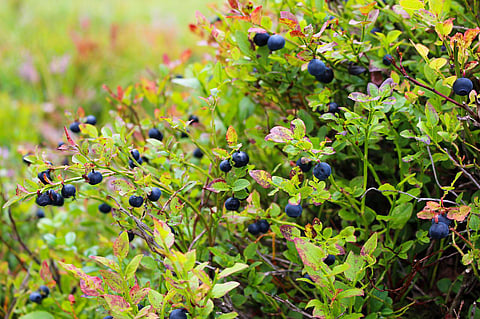UP Government To Develop Food Forests In 15 Districts
Lucknow, May 18 (TNA) In Yogi 2.0, an innovative initiative of environmental protection has been rolled out to by increasing greenery through "Food Forest". For this, the government has identified 15 districts of different agro-climatic zones. Food forests will be developed in these districts in the next six months with the help of local farmers.
Plants will be selected according to the agro-climatic zone of the district. The districts which have been identified for this project are Bijnor, Amroha and Saharanpur of the mango belt, Sambhal, Rampur, Badaun of the guava belt. Similarly, other districts are also included in one or the other fruit belt. Apart from being eco-friendly, these parks in themselves will also be an example of agricultural diversification.
Plants will be selected according to the agro-climatic zone in the food forest. Pulses crops will also be planted for nitrogen fixation in a natural way. For example, mango, guava, pomegranate and papaya saplings will be planted in the first phase in the food forest to be developed in Gorakhpur.
Food parks will be built in these cities in the initial phase: Bulandshahr, Saharanpur, Meerut, Ghaziabad, Bijnor, Amroha, Moradabad, Sambhal, Rampur, Bareilly, Badaun, Shahjahanpur, Pilibhit, Gorakhpur and Gautam Budh Nagar.
In the second cycle, saplings of jamun, ber i.e. small wild fruits will be planted. In the third cycle, tur, moong, urad, peas and gram will be sown. In the fourth phase, herbal plant parks like lemongrass, tulsi, ashwagandha will be set up. In the fifth cycle, vine species like Giloy, Grapes, Dambooti etc. will be planted.
Similarly, the selection of plants will be according to the different agro-climatic zone. Bird's beet will act as natural fertilizer. Bees and butterflies visiting the flowers will pollinate. The primary aim of the government is to increase the income of the farmers. This is possible only through agricultural diversification instead of traditional cultivation of paddy-wheat.
These parks will be an example in itself. Not only this, raw material will be available from these parks in future for the processing units. Along with the area of fruitful plants, greenery will also increase.

